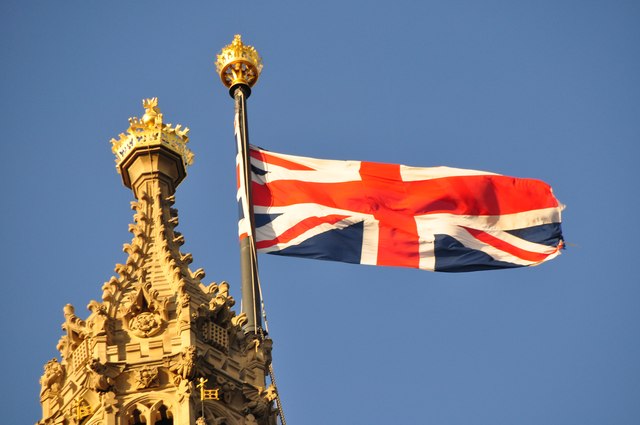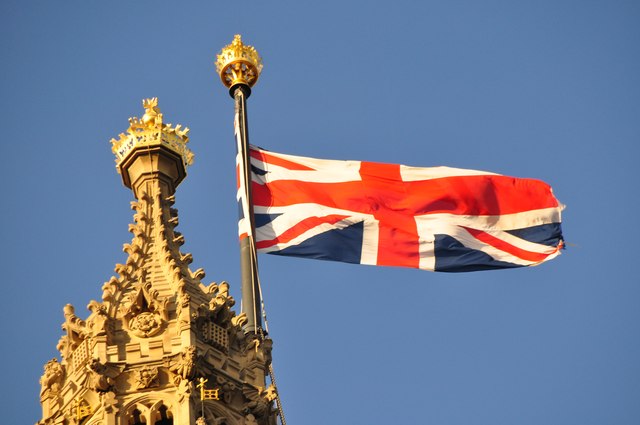
Lewis Clarke
The CBI CEO Carolyn Fairbairn told that the study is based on "consultations with representatives of several hundred companies of all sizes - from architectural bureaus to zoos." Analysts sought an answer to the question of how the rejection of uniform rules, norms and laws of the European Union will affect 23 sectors of the United Kingdom’s economy.
The most numerous categories include 18 sectors of the economy, in particular, aircraft and machine building, construction, defense, telecommunications, chemical industry, higher education, freight, energy, finance. After interviewing representatives of these branches, the authors of the report came to an unambiguous conclusion: it is profitable for everyone to follow the existing norms of the European Union after Brexit. Otherwise, British manufacturers will suffer losses as it will be much more difficult for them to get to the continental Europe’s markets.
The second category is those sectors of the economy where the unity of the pan-European and British regulations is preferable, although introduction of its rules can bring benefits to the British in some specific cases. This is, in particular, about tourism. "It is vital that agreements facilitating travel between Britain and the EU, including the liberal visa regime, aviation standards and rules for the protection of personal information, remain in place. Meanwhile, in a limited number of specific areas, absence of EU rules (for example, revision of package tours rules) can contribute to development of domestic tourism," the study said. This category also mentions the agro-food industry (it is argued that some changes that do not affect the quality and safety of products can help local farmers).
Finally, the third category is those sectors in which harmonization of rules with the EU should not be a priority in the negotiations. Among them are waste processing, water use and navigation. For example, it is explained that "Brexit will create opportunities for improving reputation and attractiveness of Britain as a place of registration of ships." At the same time, Carolyn Fairbairn warned against radical reforms, explaining: "Deviation from the rules in one sector will have consequences for other sectors, and a discrepancy in the rules in one part of the production process will have implications for market access throughout the supply chain".
Authors of the report summarize: in any scenario, "the United Kingdom cannot have the same influence after Brexit (when deciding on interstate norms) as members of the EU do." Meanwhile, it is noted that the country will be able to participate in the work of a number of bureaus and agencies of the European Union.
Recall that official negotiations on the withdrawal of Britain from the European Union and the future of their relationship started last summer, almost a year after the referendum on Brexit. Both sides appointed responsible negotiators. The European Commission is represented by ex-Foreign Minister of France Michel Barnier, and London appointed one of the influential members of the Conservative Party David Davis. By March of this year, after several rounds of talks, the parties announced that they agreed on the main issues (except functioning of the border between Northern Ireland and the Republic of Ireland). In particular, London and Brussels announced that the transition period after the formal withdrawal of Britain from the EU will last 21 months - from March 2019 to December 2020. During this period, the UK will no longer be in the EU, but all mechanisms of interaction and financial and economic regulation will remain unchanged. This measure was agreed upon at the request of businessmen who insisted on clarifying the situation for the purpose of long-term business planning.
Eurostat’s data shows what the European Union will look like without Britain. The agency’s summary tables will include a new line codenamed "EU27_2019", which will reflect the total European figures excluding Great Britain. Judging by the data available for the current year, the EU population will decrease from 511.5 million to 445.7 million people, GDP - from € 15.3 trillion to € 13 trillion, inflation rate from 1.7% to 1.4%. Unemployment level, on the contrary, may rise from 7,6% to 8,2%.
source: bbc.co.uk
The most numerous categories include 18 sectors of the economy, in particular, aircraft and machine building, construction, defense, telecommunications, chemical industry, higher education, freight, energy, finance. After interviewing representatives of these branches, the authors of the report came to an unambiguous conclusion: it is profitable for everyone to follow the existing norms of the European Union after Brexit. Otherwise, British manufacturers will suffer losses as it will be much more difficult for them to get to the continental Europe’s markets.
The second category is those sectors of the economy where the unity of the pan-European and British regulations is preferable, although introduction of its rules can bring benefits to the British in some specific cases. This is, in particular, about tourism. "It is vital that agreements facilitating travel between Britain and the EU, including the liberal visa regime, aviation standards and rules for the protection of personal information, remain in place. Meanwhile, in a limited number of specific areas, absence of EU rules (for example, revision of package tours rules) can contribute to development of domestic tourism," the study said. This category also mentions the agro-food industry (it is argued that some changes that do not affect the quality and safety of products can help local farmers).
Finally, the third category is those sectors in which harmonization of rules with the EU should not be a priority in the negotiations. Among them are waste processing, water use and navigation. For example, it is explained that "Brexit will create opportunities for improving reputation and attractiveness of Britain as a place of registration of ships." At the same time, Carolyn Fairbairn warned against radical reforms, explaining: "Deviation from the rules in one sector will have consequences for other sectors, and a discrepancy in the rules in one part of the production process will have implications for market access throughout the supply chain".
Authors of the report summarize: in any scenario, "the United Kingdom cannot have the same influence after Brexit (when deciding on interstate norms) as members of the EU do." Meanwhile, it is noted that the country will be able to participate in the work of a number of bureaus and agencies of the European Union.
Recall that official negotiations on the withdrawal of Britain from the European Union and the future of their relationship started last summer, almost a year after the referendum on Brexit. Both sides appointed responsible negotiators. The European Commission is represented by ex-Foreign Minister of France Michel Barnier, and London appointed one of the influential members of the Conservative Party David Davis. By March of this year, after several rounds of talks, the parties announced that they agreed on the main issues (except functioning of the border between Northern Ireland and the Republic of Ireland). In particular, London and Brussels announced that the transition period after the formal withdrawal of Britain from the EU will last 21 months - from March 2019 to December 2020. During this period, the UK will no longer be in the EU, but all mechanisms of interaction and financial and economic regulation will remain unchanged. This measure was agreed upon at the request of businessmen who insisted on clarifying the situation for the purpose of long-term business planning.
Eurostat’s data shows what the European Union will look like without Britain. The agency’s summary tables will include a new line codenamed "EU27_2019", which will reflect the total European figures excluding Great Britain. Judging by the data available for the current year, the EU population will decrease from 511.5 million to 445.7 million people, GDP - from € 15.3 trillion to € 13 trillion, inflation rate from 1.7% to 1.4%. Unemployment level, on the contrary, may rise from 7,6% to 8,2%.
source: bbc.co.uk


















